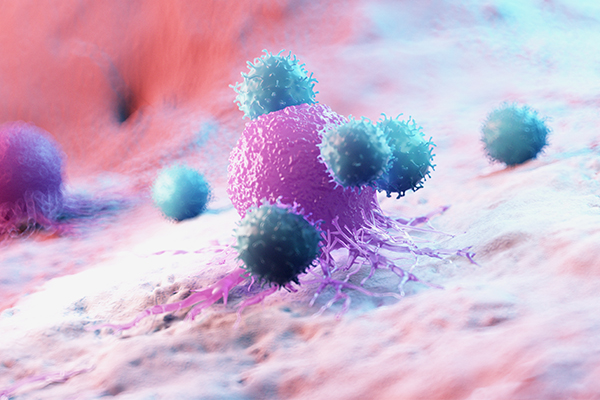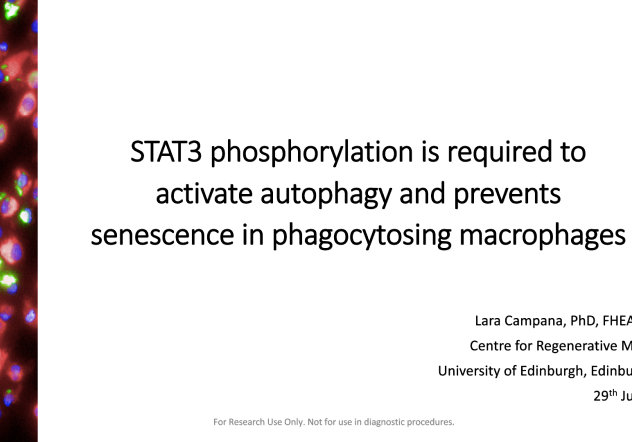STAT3 phosphorylation during phagocytosis is required to activate autophagy and prevent macrophage immuno-senescence
In this webinar, Dr. Lara Campana from University of Edinburgh discusses the molecular mechanisms underlying the pro-phagocytic function of phosphoSTAT3 using flow cytometry, transmission electron microscopy (TEM), and qPCR.
Watch the webinar to learn:
- How flow cytometry-based screening assay can be used to investigate macrophage phagocytosis
- The role of pSTAT3 as a pro-phagocytic pathway in macrophages
- How other pathways are controlled downstream of pSTAT3, including autophagy and senescence
Abstract
Acute liver injury (ALI) is characterised by hepatocyte death and liver inflammation. Macrophages play a pivotal role in ALI by phagocytosing dead cells and producing pro-regenerative signals. We have previously demonstrated that phagocytic cargo-dependent activation of phosphoSTAT3 is required to maintain phagocytosis efficiency in macrophages. In this study, we aim to understand the molecular mechanisms underlying the pro-phagocytic function of phosphoSTAT3. Phagocytosing bone marrow derived macrophages (BMDMs) treated with and without a phosphoSTAT3 inhibitor, or from mice deficient for the cargo digestion step of phagocytosis (Gpnmb-), were analysed using flow cytometry, transmission electron microscopy (TEM), and qPCR. Results show that Gpnmb- mice are unable to regenerate their liver efficiently after POD: infiltrating phagocytosing macrophages FAC-Sorted from these mice showed increased expression of senescence-related genes, such as Tnfrsf1b and Cdkn1a, but not of apoptosis-related genes, such as Card9. This suggests that macrophages unable to process the internalised cargo enter immuno-senescence, a condition characterised by elevated production of inflammatory cytokines and reduced phagocytosis.
About the Speaker
Lara Campana obtained her Ph.D. in Cellular and Molecular Immunology from The Open University and the Vita-Salute San Raffaele University (Milan, Italy). She started her career studying the role of innate immunity in acute muscle injury and repair, and she participated as collaborator on projects aimed at understanding the role of macrophages in development, tumour and autoimmune diseases. Her core expertise is in the development and analysis of cell-based assays for macrophage function; set up and analysis of multiparametric flow cytometry panels; in vivo models of acute and chronic liver disease and of acute and chronic muscle disease; literature meta-analysis in inflammation and tissue repair. Her research has been published into various peer-reviewed journals, including The Journal of Leukocyte Biology, PlosOne and The Journal of Immunology, The Journal of Immunology, Journal of Hepatology and Nature Communications. She completed her teaching qualification as Fellow of the Higher Education Academy (FHEA) of the UK in 2016, and her application to Member of the Royal Society of Biology was accepted in 2018.


